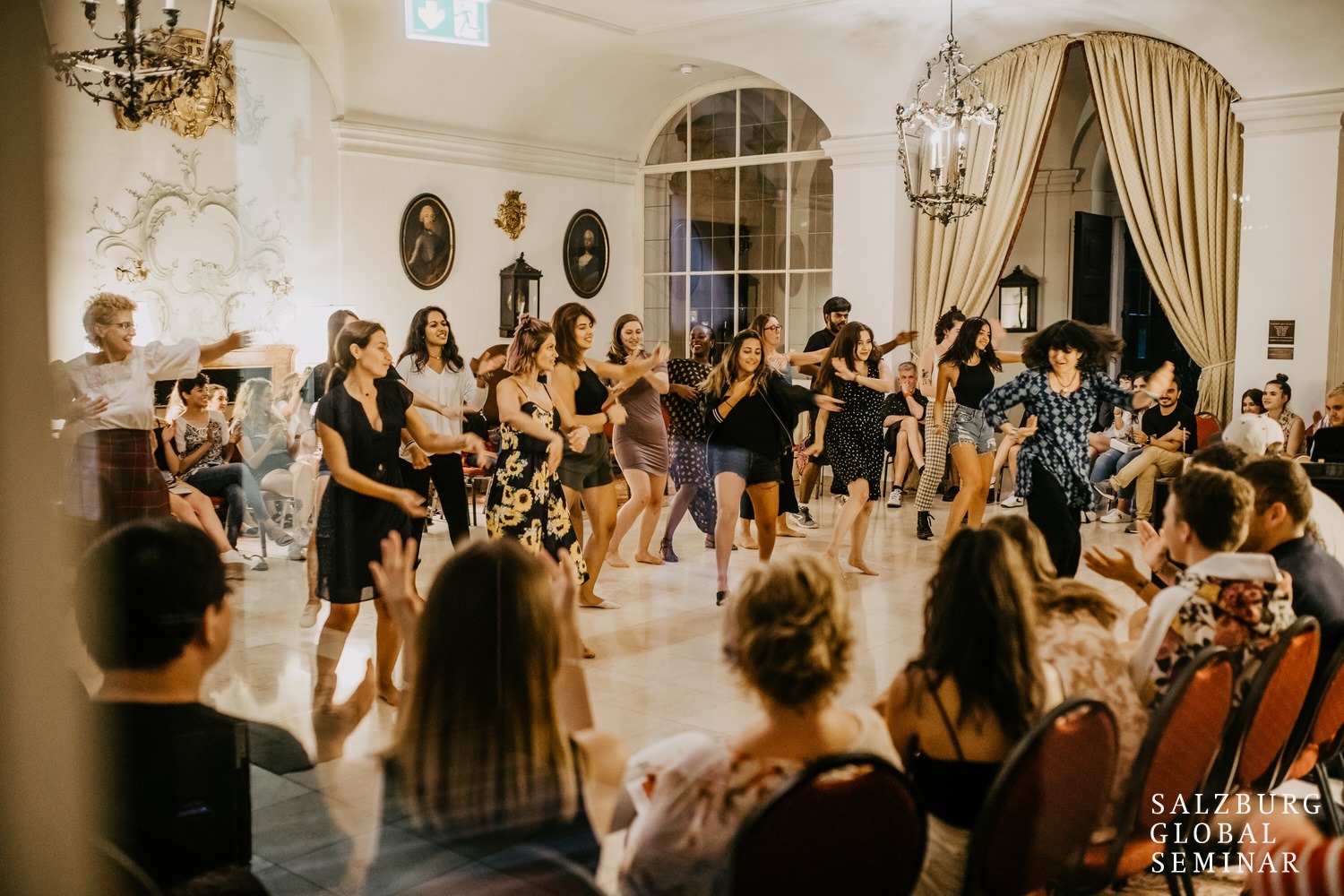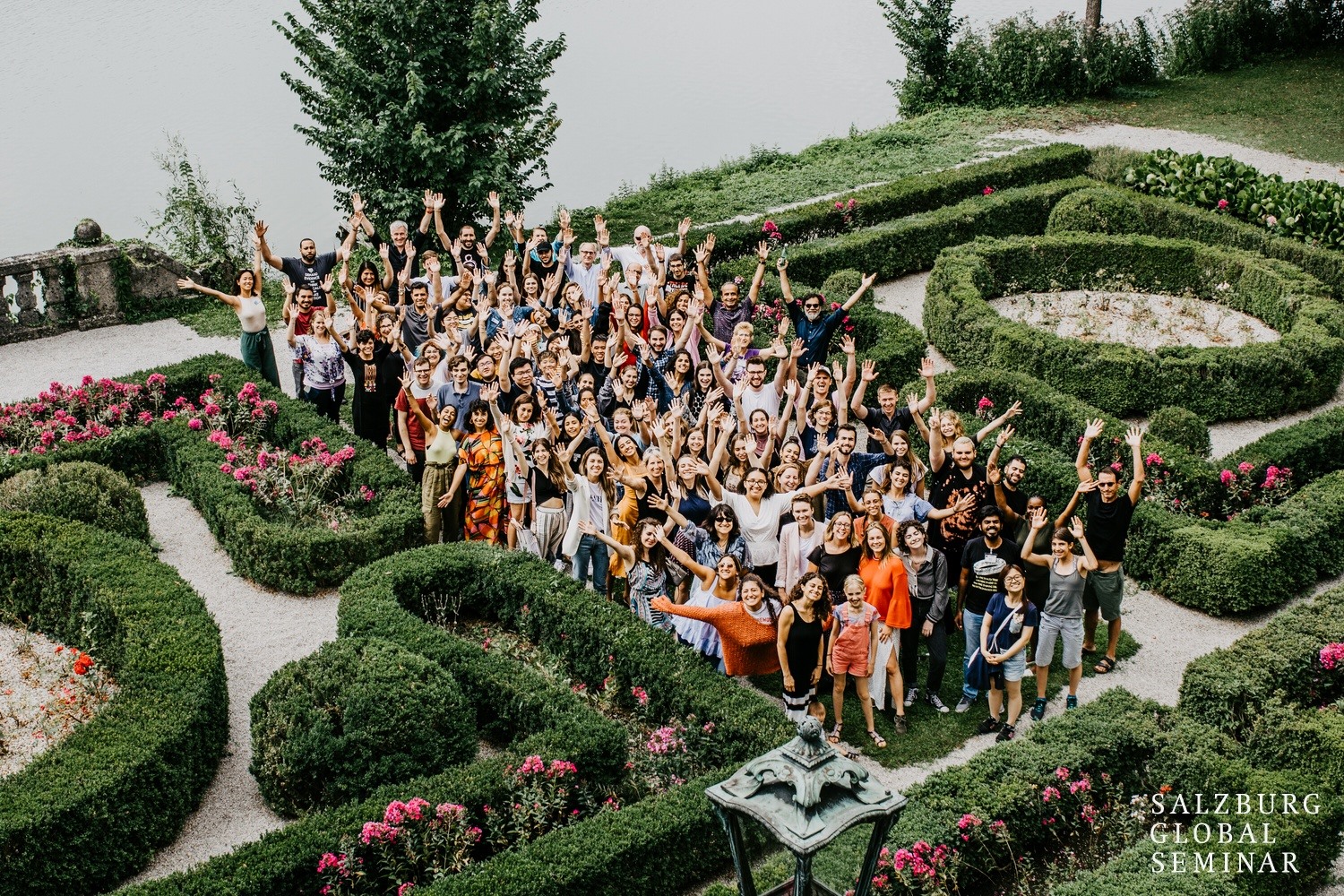Emerson Students Explored ‘Fracturing Societies and the Erosion of Trust’ at Global Media Academy

By Molly Loughman
At Emerson’s annual Global Pathways program in Salzburg, students focus on media literacy, and global networks for innovation and engagement in digital culture while being immersed in the Austrian culture for three weeks.
“It’s not just a group of Emerson students hanging in another country. It’s quite the opposite actually,” said Paul Mihailidis, Associate Professor of Civic Media and Journalism, who led the Global Media Academy program in Salzburg. “Young people from 25 countries are in residence together working living and eating together. They are exposed to inspirational people doing impactful work in places like Bangladesh, Syria, and Palestine.”

With this year’s theme of The Cost of Disbelief: Fracturing Societies and the Erosion of Trust, students heard from Bangladeshi photojournalist and activist Shahidul Alam about vulnerability, trust, and courage through the medium of photography, as well as Naja Nielsen, digital director of BBC News, about journalistic responsibility, impartiality, and the freedom of speech.
At the end of the 17-day program a digital publication, [re]BUILD: Interactive Learning Experiences for Media Literate Societies, is produced. The project features six approaches that push the boundaries to journalistic practices for engagement, innovative and accessible technology use, and inclusive storytelling.
This year’s group of Global Media Academy students are majoring in students in Media Arts and Media Design, along with undergraduates in Business of Creative Enterprises, Visual Media Arts, Journalism, Marketing, and Political Communication. During the program, students used their skills in media design, production, and editing, by creating infographics, videos, zines, and art for their projects.
“This year’s cohort was asked to do more, in a short amount of time, and engage in a topic that’s pressing and urgent. We had a new pedagogy model in place, which ask grad students to take a more leadership position. They did that and with lots of energy and rigor,” said Mihailidis.
“But the real skills of Emerson students are their creativity, their progressive approaches to learning together, their ability to navigate diverse backgrounds, to acknowledge others, and to be present. Those are the most important skills, and what Emerson does that’s so amazing.”
Reporting from a previous article by David Ertischek was used in this article.

Categories